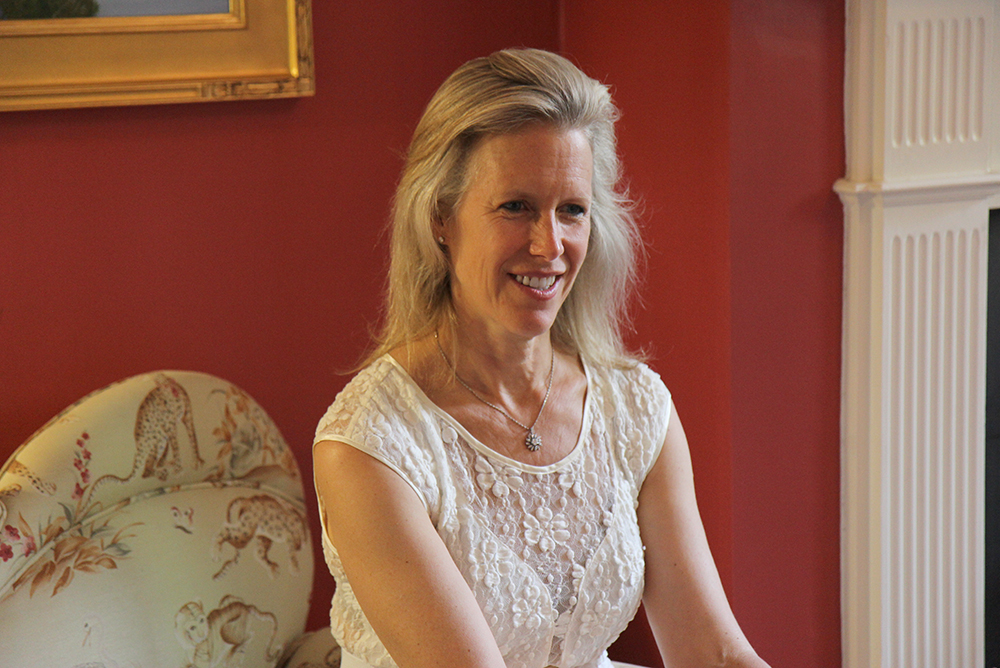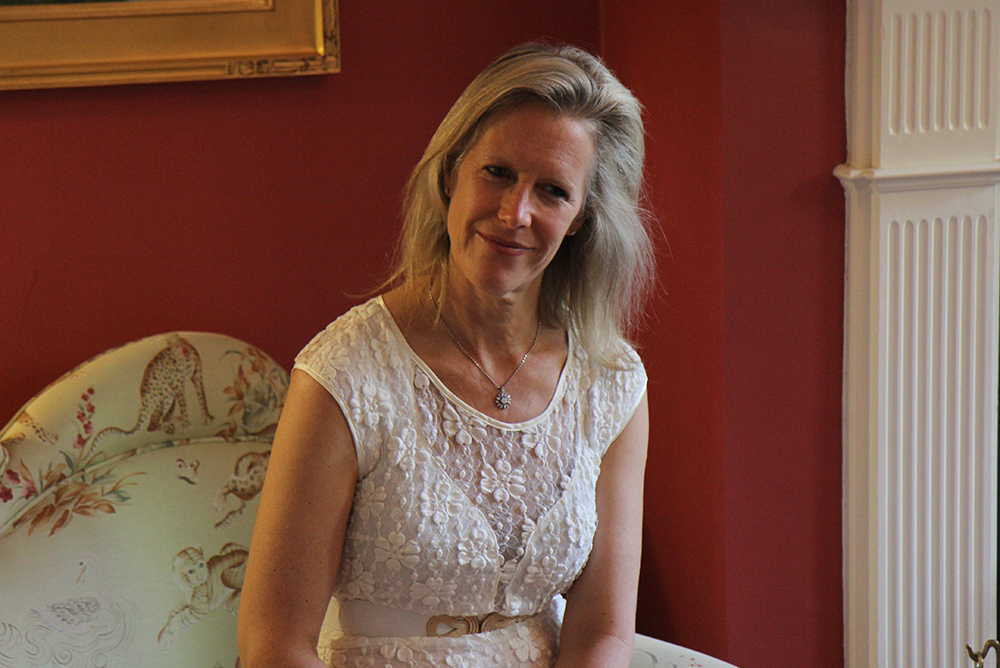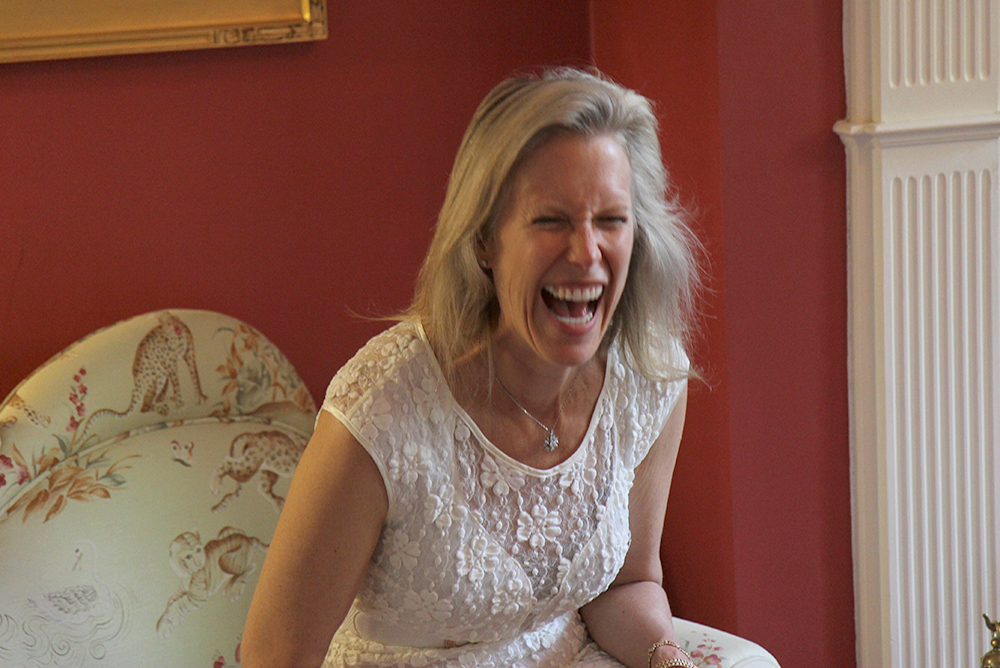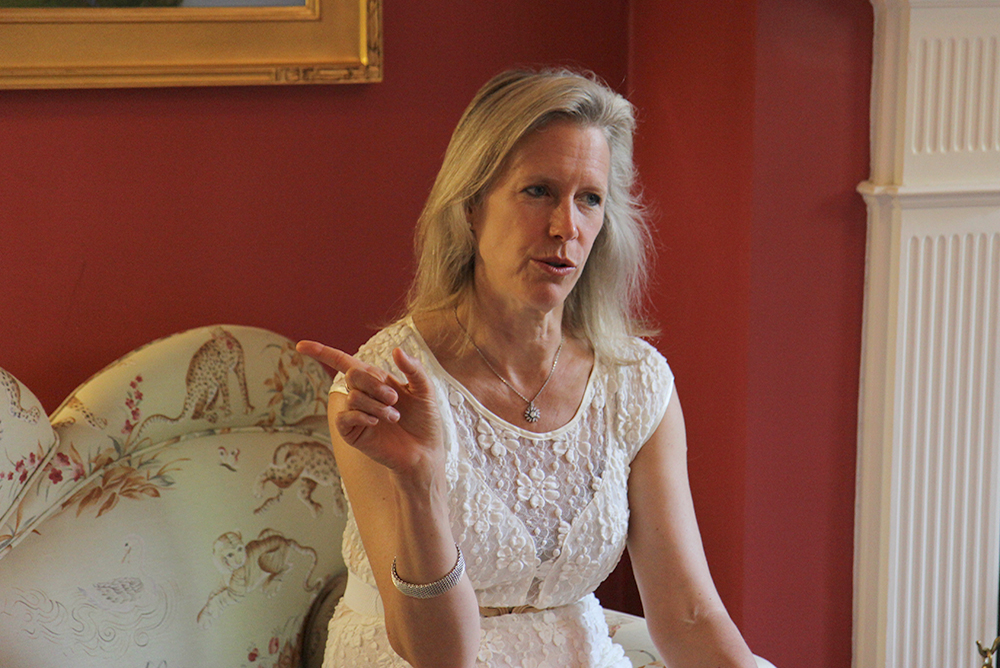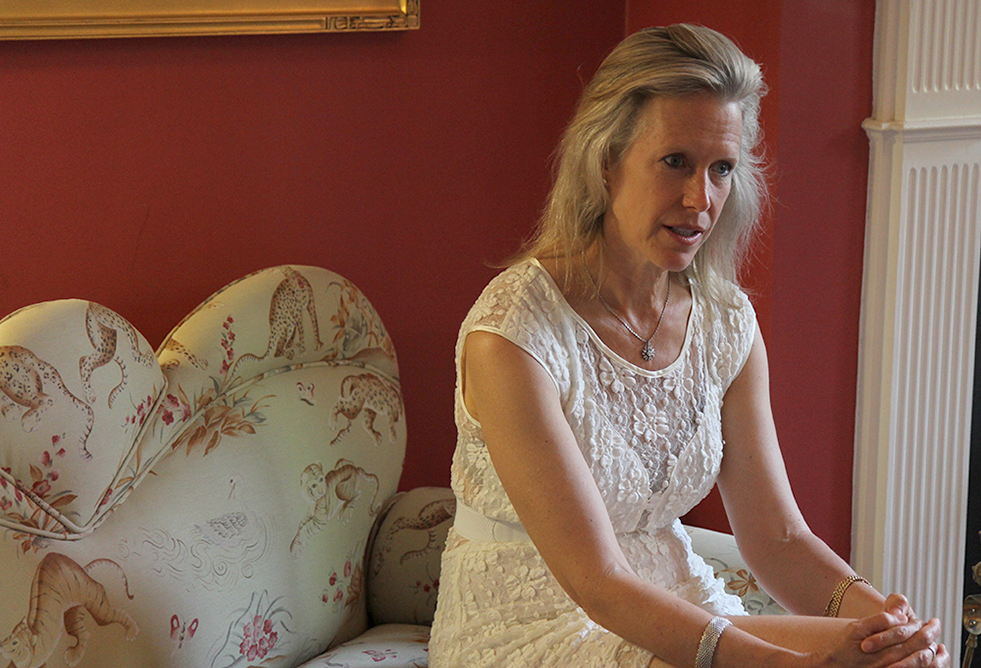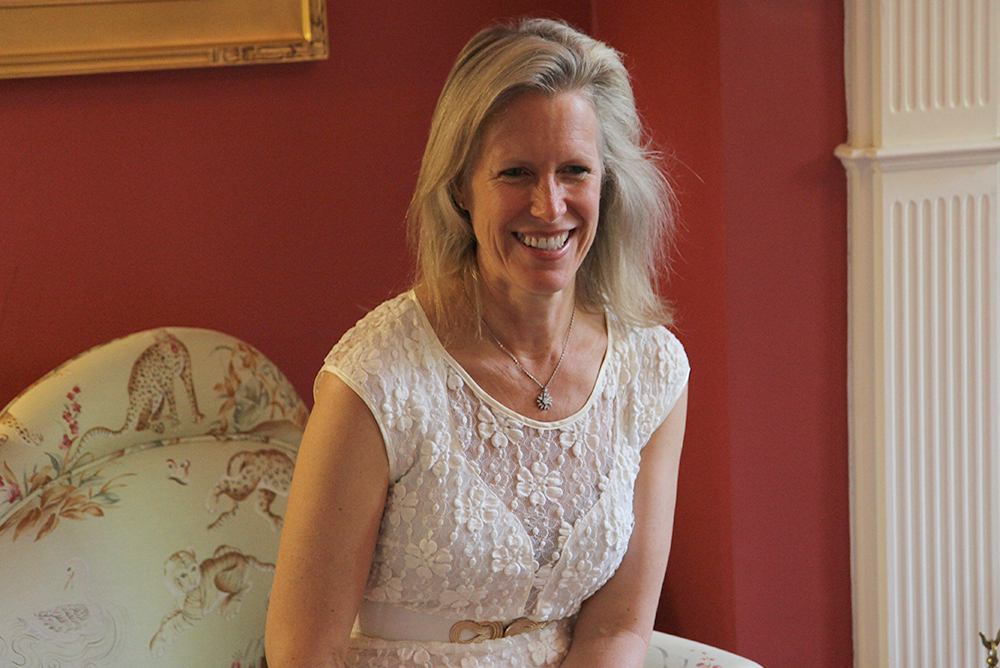Super Women: Leslie Morgan Steiner
For a person who tackles tough subjects, Leslie Morgan Steiner seems to be able to have a lot of fun and a lot of laughs. She is the author of three books: “Mommy Wars,” about balancing work and motherhood; “Crazy Love,” about her own early marriage and abusive relationship; and “The Baby Chase: How Surrogacy Is Transforming the American Family ,” the lengths to which infertile people will go to have a baby. A Washington native (Wesley Heights in Northwest), the one-time editor at Seventeen magazine went on to get her MBA and joined the business side of The Washington Post. But raising three children with her second husband soon meant that working at home, on books, was the better idea. Leslie has given TED Talks (TED, of course, stands for Technology, Entertainment and Design) and has become a well-regarded speaker across the country on women’s issues. We caught up with her in her Georgetown home.
MLB: How would you describe the arc of the subjects you’ve undertaken in your books?
LMS: Since I was a little girl I’ve found women to be really interesting, starting, of course, with my own mother. My mom was really smart, she’d gone to Radcliffe, she was a big athlete, she was wonderful, but she was really frustrated being a stay-at-home mom. I thought she was fascinating. And then my first job out of Harvard was Seventeen magazine, again teenage girl issues–not how to put on lipstick but fairly meaty things, when to have sex, how to get birth control, how to navigate the world of a teenage girl.
So that’s what I’d say all the books have in common. The first one, “Mommy Wars,” was about how to balance work and family, about working mothers and stay-at-home mothers. It was really a book about how hard it is to be a mom. “Crazy Love” was about abusive relationships, which unfortunately lots of people, particularly women, have experience with. So “The Baby Chase” is about what happens to you when you really want a baby, which is such a quintessential women’s issue.
I think it’s a fascinating time to be a woman. And this is a great country to be a woman in. We have so many choices. Things are changing so quickly for women.
What I found starting with “Mommy Wars” is that about every five years the issues facing women change. Not radically, but the issues facing me 10 years ago are really different from those facing a mom today.
MLB: Is it just a demographic thing, that it’s our big bulge moving forward as we’re growing older?
LMS: I just think it’s the legacy of feminism. The statistic is something like, the number of women with college degrees is more than twice what it was 10 or 20 years ago. So women are getting incredibly well educated. In the law schools female graduates outnumber men, the same thing is happening in medical schools. So women are getting more educated, making more money, though not enough… So that’s what I think is driving it.
MLB: You’ve had an interesting personal life. I mean, “Crazy Love” was part of your path. I’ve seen your TED Talk where you talk about violence and I see women are blown away by it. You’ve explained [abusive relationships] in a way that makes people understand how women can become complicit in this kind of thing.
LMS: That was my goal, that people who hadn’t been abused could understand how you could fall in love with someone who’s abusive and stay in a relationship for so long, and how difficult it is to leave. I’m not ashamed, I’m not embarrassed about what happened to me–it wasn’t my fault. When I give my “Crazy Love” talks, about 30 times a year, I tell people they can ask me anything, there’s nothing too personal.
The people I speak to tend to be at big fundraisers, say for the YWCA, more and more I’m talking to the military, and I talk to groups of district attorneys and judges. I spoke to a thousand Marines last year. It was almost all guys. They wanted to talk about it, they knew a lot about it. We often forget, men aren’t just offenders, they’re very often victims, from their childhood, sometimes at the hands of their mothers, not their fathers. Women abuse too.
But yeah, that is my path, not what I expected. I thought I was falling in love with the greatest guy on the planet, and in some ways he was, but just so troubled. People sometimes think that women who get into abusive relationships have too little self-esteem, but sometimes we have too much. I was over-confident. You know, I can fix this, no problem, I had a great childhood, I can show him what love is about.
I never expected “Crazy Love” to do so well. I mean, you write a book in private, and it wasn’t until I published it that I began speaking about it. And people began responding, emailing me, telling me their stories. The people who work in this field are amazing. A lot of people who work in shelters are involved because one of their relatives was killed, so this is intensely personal for them.
MLB: So the surrogacy book is happier.
LMS: [laughs] Yes, “Mommy Wars” is happier, and “The Baby Chase” is happier. And I still get engagements to talk about “Mommy Wars” [2006] and “Crazy Love” [2008]. The speaking is great. I mean what more does a writer want but to talk about their book! It’s like a book tour that never ends.
MLB: About “The Baby Chase,” I want to argue with you. It’s fine for people to want babies, and it’s fine for people to go to lengths to get babies. I don’t want to pay for their babies. You want [surrogacy] covered by health insurance, right?
LMS: Right. I mean, I don’t want to pay for their broken legs. I don’t want to pay when somebody who’s not wearing a seatbelt is in a car crash… I think that’s a greater health-care point. But I think wanting to have a baby is a really basic biological desire. It’s hard [subject]. The problem I run into is, I don’t think only rich people should be able to have babies.
MLB: Fair enough.
LMS: So how can you make it somewhat level.
MLB: Except, it’s not rich people who are having babies. It’s poor people, all around the globe.
LMS: True. But I don’t want only rich infertile people to be able to have babies. I’ve always had a lot of sympathy for people who can’t have children. As I said in my TED Talk, though, most infertile people don’t actually want children, they never seek any medical attention. But for people who do want the kids, being infertile is a terrible affliction. It makes them feel cursed and it can ruin their life, not for a few years but until the day they die.
And I think we have a real problem in this country, that we don’t deal with things that are messy, we just farm them out [surrogacy is illegal here]. So people go to other countries.
MLB: Can’t they adopt?
LMS: They can’t. There are some 11 million unwanted Indian girls, and the Indian government makes only 200 available every year. It would solve things if [the governments of populous countries] would open up more to adoption. But there’s so much trafficking in women, they’re worried it would lead to the trafficking of young girls.
People who want a child would adopt a squirrel. Really, they don’t care–they just want a baby.
MLB: You’ve told me you have three children and four cats. What do your kids think about your work? Are they interested in it?
LMS: Yes, they’re interested. The youngest is 13, the oldest 18. So they’re all teenagers. I would say they’re really proud of it, especially about the domestic violence work. They come to me a lot–Did you hear about this? Did you see this in the media? And I’ve spoken at their schools several times.
All of their friends have read “Crazy Love,” but I can tell you none of my kids has read “Crazy Love.” They know about it, but it’s too much for them. Maybe someday. But you don’t want to read about your mom that way. The surrogacy book is squeamish for kids too, ’cause for years all I talked to them about was sperm and eggs…
–Nancy McKeon
